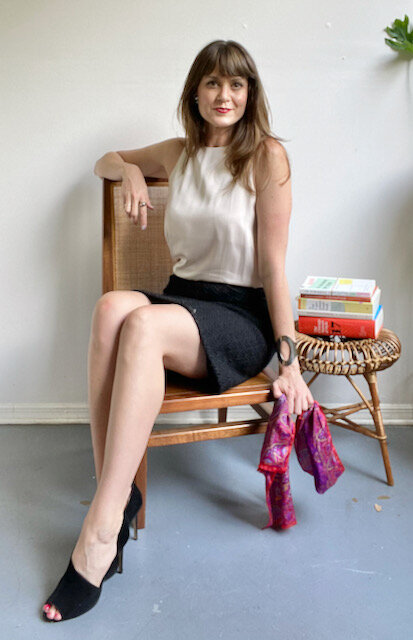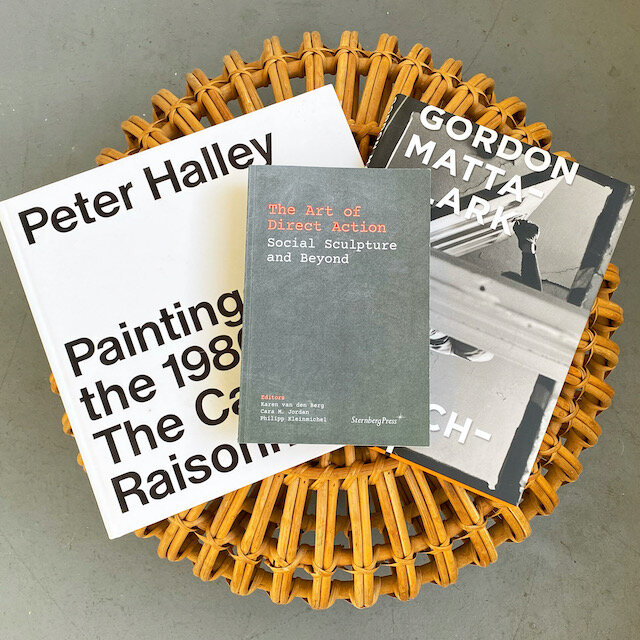Is academia getting you down? Have you grown tired of the long hours, low pay, and “cult-like” atmosphere? Are you considering a career shift that allows you to utilize the writing skills you’ve gained teaching art history (or another academic field) as a freelance editor?
Aspiring editors often contact me to learn more about my own career trajectory and how I transitioned from an academic career path into freelance editing in the hopes of doing this themselves. In this multipart series of blog posts spread throughout the fall 2021 semester, I will give you an abridged version of my path to editing and how I’ve built it into a sustainable career. I’ll also give you advice about how to build a business of your own.
In today’s post, I’m going to tell you more about my journey out of the academic cult and into my own business as a freelance editor specializing in art writing and, later, as an editorial business owner. While I may be successful now, the path wasn’t always paved in gold.
Like many post-ac or alt-ac professionals, my current career started as a Plan B in grad school.
When I began my PhD at the CUNY Graduate Center in 2008, I was leaving a low-paid museum job and entering a program without funding—and I didn’t know what to do. How was I going to support myself, especially with an economic crisis going on? Teaching jobs were few and curatorial positions were unpaid, so neither was an option for me as a single woman without financial means in New York.
Luckily, because of my museum connections, I was able to find employment in artist’s studios fairly easily. After a little while, I landed in Luca Buvoli’s studio at PS122 and later worked for Peter Halley. There, I formatted and updated CVs, wrote bios, drafted copy for websites, edited all manners of proposals, in addition to working on more public-facing texts, like press releases, exhibition catalogue essays, and, of course, emails … oh, the emails! While working for artists can be frustrating for some, I have always genuinely enjoyed helping artists turn their ideas and processes—which can seem, at times, like cloud formations—into accessible writings that can captivate multiple audiences.
In 2015, while I was living in Berlin finishing my dissertation and writing for artist Christian Philipp Müller, I also began to edit academic manuscripts, mainly for other grad students and for friends who were in my program. This aspect of my business has only grown since—in many ways surpassing what I’d already established for artists. Pressed to find a solution to getting an work visa, I set up a website, began taking on clients from my existing network, and started the editing certificate program at UCSD.
Many aspiring editors whom I’ve spoken with—and even interviewed for jobs in my company—say that they think they’ll be a great editor because they really enjoy helping students with papers and that they’re detail oriented. While this may be true, one’s passion for the field is only one small part of this profession. It’s only the first ingredient needed to start baking the cake.
If you want to be an editor, the first thing you need to do to professionalize yourself is to seek professional development.
To truly become an editor, one must have some kind of professional training, and that’s where programs like UCSD’s copyediting certificate come in (or those at Simon Fraser University, UC Berkeley, or the University of Chicago). Run through a university’s continuing education program, these certificates will give you the knowledge you need to start taking on real professional clients, rather than students who may not know the difference between an amateur and professional editor. They will also help you codify your aptitude into a real skill that you can apply to all types of documents with accuracy and the knowledge to back it up.
Let’s put it this way: if I wasn’t an editor myself, there’d be no way I’d hire a freelance editor who hadn’t completed one of these programs to work on one of my manuscripts (and, yes, I still hire freelancers even though I’m an editor myself—it’s very hard to edit your own writing).
You could also dip your toe in with a course or two through one of the editorial associations, particularly the Editorial Freelancer’s Association (EFA) or the Chartered Institute of Editing and Proofreading (CIEP). Once you begin making the commitment to this field, these organizations evidence your professionalization.
For me, taking the UCSD program—which took about a year and a half online—was an important step to making editing into a viable income stream. It helped me to establish working practices and, ultimately, to begin charging appropriately for my services.
However, practical issues aside, in order to make the shift the right mindset is key. Whereas academia is often built to tear us down, in order to be your own boss, you’ve got to find strength from within.
Editing was always a backup for me; it took me a while to realize that it could be lucrative and that it was a viable career path. And a lot of that had to do with the “cult” of academia, which the inimitable “Professor Is In” Karen Kelsky is so fond of tearing down.
Back when I was still presenting at conferences and publishing on my own research, I would clock the looks of pity when I told my “colleagues” about what I was doing with my life. How could I deign to choose a career that wasn’t teaching or working in a museum? Isn’t editing just part of the gig economy or, worse, isn’t it just grifting those who worked so hard to climb up the ivory tower?
But, if I’m honest, academia was never my dream. I always wanted to do many things with my life, least among them sit in a cubicle. I liked teaching, but not enough to do whatever it took to do it full time—which is, literally, what you have to do to achieve a tenure-track job, at least in the past ten years or so. While I respect those who are willing to struggle through this process, I just wasn’t able to take a visiting professor position in the middle of the country or be separated from my partner, who is willing to do that for his professional goals. We all have different priorities.
Also, I’m just way better as an editor than I ever was as an academic. Plain and simply: I’m not an intellectual; but I can use my skills to help others who are intellectuals achieve their professional aspirations. I’ve published a fair amount on my own, but I’m way better at getting others’ work published and helping them navigate the academic publishing world. I’m also a great teacher, but I’m better at teaching other academics about writing than I am at inspiring young minds about the value of art history.
(And, if you’re wondering or even judging my refined sense of self-worth, I’ll be the first to admit that it took me a long time to get to this point because of the infantilization and imposter syndrome I experienced while in grad school.)
Things got real for me when I gave up any hope of “doing” academia myself: I stopped applying to academic jobs, trying to publish my own art historical articles and books, and I really 100% committed to this life. And I don’t regret it.
I once ran into a woman through a hobby of mine—restoring mid-century furniture—with whom I bonded because she said she was a former academic and was, like me, an editor. We got to talking and she admitted to me that she switched from working as a freelancer to a full-time role as an editor at a startup. She was now making $150,000 per year and was able to really enjoy her life, including supporting her kids through college.
I thought to myself, “How is it possible for someone to do what I do and make six figures?” I was totally jealous—and endeavored to shift my own mindset about what my business can and should be.
The pandemic has prompted a lot of people to rethink their careers, what makes them happy, and whether what they do is meaningful in the world. For me, it instigated a change in the way I do business. I decided to switch from being a solo freelancer to expanding into an agency model—I currently have thirteen other editors, writers, teachers, and translators working with me who allow me to offer all kinds of services that I could never do alone.
This is all to say that it can be done—but I’d be remiss if I didn’t warn you that this career transition is not a quick fix.
It took me about three years to gain a solid enough client base to avoid the dreaded freelancer’s economic “feast or famine.” Because of this, it’s often not a good idea to quit a regular income stream while you’re learning this new skill and how to run the business side. Like any new business, you’re likely to start off in the red before you get into the black.
In the coming semester, I’ll write more about some of the important aspects of building up a successful business as a freelancer for those seeking more guidance. I’ll also give you insights into building this into a career, if it’s a path you choose to follow.
For now, I’d like to applaud you for taking the first step to learning what else might be in store for the next stages of your career.
Want more help? I now offer Transition Coaching for academics looking to get into editing. Book your slot with me today!


